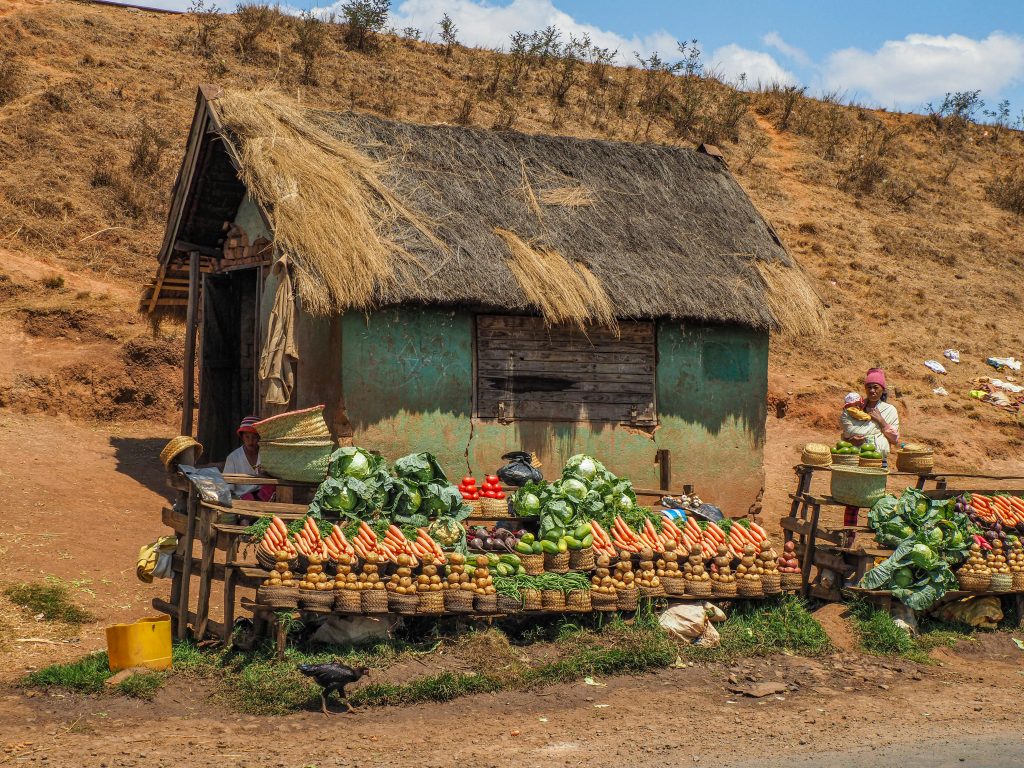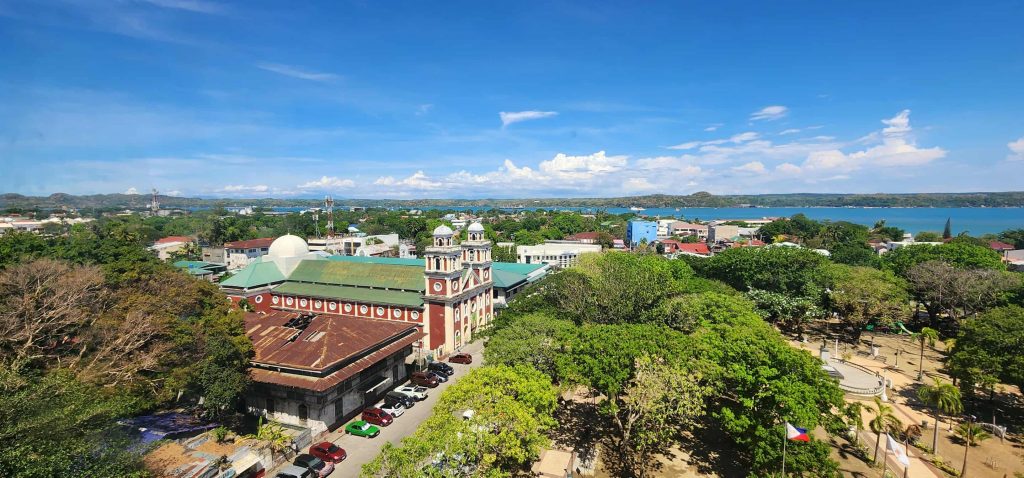From the rural communities of Madagascar to the complex humanitarian and development settings of the Philippines, AKO’s work is rooted in more than fifteen years of experience leading monitoring, evaluation, and learning (MEL) systems that drive accountability, resilience, and sustainable change. Across sectors — from food security and livelihoods to disaster response, climate adaptation, governance, and social protection — each engagement has reinforced one conviction: evidence and learning are powerful catalysts for lasting impact.
These five highlights illustrate the evolution of that practice and the foundation of AKO Consulting’s mission — to bridge African expertise and European innovation, helping organizations and partners turn insight into meaningful, measurable, and sustainable outcomes.

Food Security & Rural Livelihoods (Madagascar)
Key Result: Improved food security and resilience for more than 300,000 rural households through participatory monitoring and adaptive management systems.
Key Contribution:
Led the design and implementation of MEAL systems for two five-year USAID-funded programs (USD 45 M and USD 36 M), integrating climate-smart agriculture, agribusiness, agroforestry, nutrition, disaster risk reduction, and natural resource management.
Strengthened evidence-based decision-making by introducing participant-based surveys and institutionalizing learning loops that connected communities with decision-makers.
Supported proposal development and strategic design to embed MEAL frameworks from project inception to implementation.
Conducted capacity-building programs for local partners and government counterparts to enhance data-driven adaptive management.
Pioneered the use of digital and innovative M&E tools — including mobile-based data collection and real-time dashboards — to improve efficiency and promote organizational learning.
Contributed to the design and monitoring of social protection interventions, including cash transfers and food distribution for children under five and vulnerable households.
Scope: Food security, nutrition, climate-smart agriculture, agribusiness, resilience measurement, and social protection.

Resilience & Climate Adaptation (Philippines)
Key Result: Guided city governments to integrate climate data and resilience metrics into urban planning and informed the allocation of over USD 15 M in climate adaptation funding through evidence-based analysis.
Key Contribution:
Led the design and operationalization of MEL systems for a five-year USAID-funded climate adaptation project, supporting six cities in addressing urban climate risks.
Developed and institutionalized a 25-indicator MEAL framework aligned with city resilience priorities, the National Climate Change Adaptation Plan, and Indo-Pacific climate action frameworks.
Applied Outcome Mapping and Outcome Harvesting during the project’s midterm review to assess behavioral and systemic changes across local governance and stakeholder networks.
Integrated AI-assisted qualitative analysis to identify emerging trends, stakeholder perceptions, and cross-city learning themes from interviews and reports.
Supported proposal development and strategic design to embed MEL systems within local government climate and development planning.
Conducted capacity-strengthening and learning workshops for city governments, local universities, and partner NGOs to enhance climate data use, monitoring, and policy reporting.
Introduced digital tools and evidence-mapping systems to visualize urban vulnerability, monitor adaptation progress, and inform decision-making.
Contributed to knowledge synthesis and advocacy materials that elevated city-level learning to national policy dialogues.
Scope: Climate resilience, urban governance, data-driven adaptation, and M&E innovation.
Humanitarian Response, Resettlement & Resilience Building (Philippines)
Key Result: Strengthened disaster preparedness, resettlement, and livelihood recovery systems while institutionalizing countrywide MEAL and accountability frameworks across a USD 100 M humanitarian and development portfolio.
Key Contribution:
As Head of Monitoring, Evaluation, Accountability, and Learning (MEAL) for the Catholic Relief Services (CRS) Philippines Country Program, provided strategic leadership across program areas including Disaster Risk Reduction and Emergency Response, Agriculture and Livelihoods, Resettlement, WASH, Justice and Peace Building, and Social Protection.
Designed and supervised baseline and endline evaluations using mixed quantitative and qualitative approaches to assess program outcomes and inform adaptive decision-making.
Developed and rolled out country-level MEAL policies and procedures, ensuring harmonization and compliance across projects and partner organizations.
Led the design of the CRS Philippines Accountability System, strengthening feedback, learning, and transparency mechanisms.
Built and institutionalized project-level MEAL systems tailored to diverse donor requirements.
Supported proposal development, contributing to the mobilization of over USD 100 M in grant funding, including large-scale climate adaptation and humanitarian projects.
Scope: Humanitarian response, resettlement, livelihoods, accountability systems, and country-level MEAL leadership.
Monitoring, Evaluation & Learning for Sustainability and Impact (Cross-regional)
Key Result: Institutionalized data-driven and learning-oriented systems that strengthened sustainability, accountability, and long-term impact across multi-country and multi-donor portfolios totaling over USD 150 M in humanitarian and development funding.
Key Contribution:
Provided strategic leadership in designing, operationalizing, and institutionalizing MEAL frameworks that transformed monitoring and evaluation into engines for adaptive management and sustainable outcomes.
Developed Theories of Change, Results Frameworks, and Learning Agendas that informed project design, proposal development, and decision-making across national and regional programs in Madagascar and the Philippines.
Integrated innovative methodologies — including Outcome Mapping, Outcome Harvesting, and participatory evaluation approaches — to capture systemic, behavioral, and policy-level change.
Introduced digital dashboards and real-time data systems that connected field-level evidence with management and donor decisions, ensuring continuous performance monitoring and learning.
Strengthened accountability and feedback mechanisms, institutionalizing systems that enhanced transparency, community trust, and adaptive program design.
Laid the groundwork for sustainable MEAL capacity by mentoring staff, training partner organizations, and fostering a culture of reflection and knowledge sharing.
Pioneered early applications of AI-supported analysis and evidence synthesis to enrich learning processes — a practice that now underpins AKO’s approach to meaningful, technology-enabled impact measurement.
Scope: MEAL systems innovation, sustainability, adaptive learning, and evidence-driven impact.
Strategic Partnership with Cabinet CAST (Madagascar & France)
Key Result: Strengthened AKO’s foundation through collaboration with a leading Madagascar-based consulting firm recognized for two decades of excellence in evaluation, research, and strategic advisory across Africa.
Key Contribution:
Established a strategic partnership with Cabinet CAST, leveraging its 20+ years of field-proven expertise in evaluation, applied research, and institutional learning to expand AKO’s reach and impact.
This partnership bridges African field experience with European innovation in sustainability and impact measurement, positioning AKO as a connector between local realities and global standards.
Together, AKO and CAST co-develop and deliver:
- Evaluation frameworks and MEAL systems for international and regional development partners.
- Impact studies and baseline evaluations integrating quantitative, qualitative, and participatory methods.
- Sustainability and ESG-aligned assessments linking development outcomes with corporate and policy frameworks.
- Knowledge products and learning initiatives that translate evidence into decision-making across Africa and Europe.
Selected Achievements (Cabinet CAST):
- Completed over 60 evaluations and applied research studies across Madagascar, Comoros, and sub-Saharan Africa.
- Delivered major assignments for World Bank, USAID, IFAD, UNICEF, Cornell University, and other international institutions.
- Supported resilience, food security, and social protection programs benefiting hundreds of thousands of rural households.
- Co-developed participatory and mixed-methods evaluation frameworks adopted by donors and national institutions.
Scope: trategic partnership, evaluation expertise, sustainability research, and Africa–Europe knowledge transfer.
